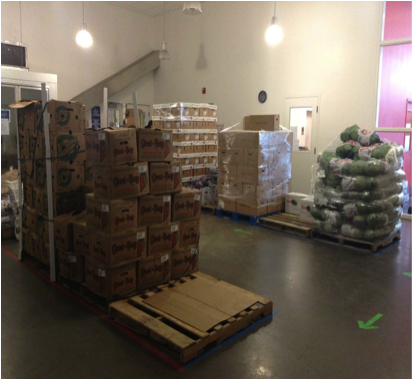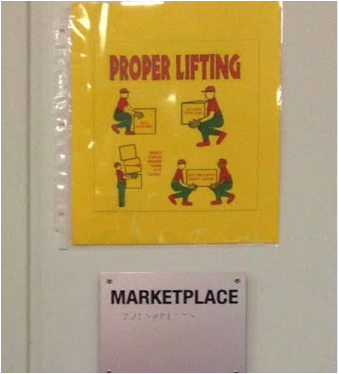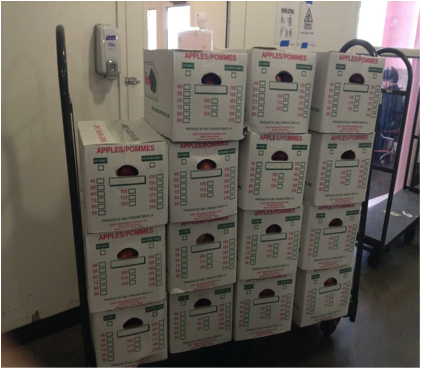Lean for Social Innovation: The Next Frontier
By Wiljeana Jackson Glover, Assistant Professor of Technology, Operations and Information Management at Babson College. This post is the last in a series that explores how Toyota Production System (TPS) principles were applied at the Greater Boston Food Bank (GBFB) to support social innovation. Posts include the opinions of thought leaders and Babson student perspectives.
By May, our first lean project to apply the Toyota Production System (TPS) to the GBFB Marketplace was complete. The student team was able to:
Improve Flow
- Increased the number of pallets that can fit in the marketplace by 15.4%
- Increased visualization of flow and food
Add Helpful Safety Signage
Test New U-Boats which led to fixing the Current U-Boats
However, these improvements did not happen without our team encountering some challenges. Our team has learned a lot from reflecting on our performance and I offer the following recommendations to help your rapid change efforts.
- Fail Fast and Learn: When a group is planning to make changes, it is easier to continue observing and analyzing than to bite the bullet and make a change. What if we’re wrong? What if we make a big mistake? These fears impede rapid experimentation and should be addressed early and often.
- Involve ALL: The Marketplace is a cross-functional area that involves several functions of GBFB, from the procurement of food to the shipping docks. While our students had several conversations with the Marketplace employees, we were not always as diligent about meeting and communicating with the other functions that impacted the Marketplace. My own research has examined the importance of involving all employees in lean change efforts in order to build positive attitudes toward future change efforts and to see positive results. We did this later in our improvement journey than we should have, but it was a great learning experience for everyone involved and gave us a much better idea of how to start future projects.
- Stick With It: There are times in every improvement journey where you can think: “Is this worth it?” “Will we ever be “good” at improvement?” “Let’s just keep things as is.” Well these thoughts can undermine your long term lean journey. While our team may have experienced some of these thoughts from time to time, in general, GBFB’s commitment to change motivated us all to stick with the Marketplace project and to consider other areas of GBFB for future projects.
This project has demonstrated the possibilities of lean to effect change for social good. So what next? I am pleased to announce that Lean for Social Innovation will be offered as a course for Spring 2015. With continued support from Toyota, the action-learning based course will be targeted to 3rd and 4th year undergraduate students with an interest in operations and/or non-profit organizations. Continuing our “learn by doing” approach, students will be expected to be on site with the partner organizations at least 3 hours per week. New to the Spring course, In addition to their on-site time, the course will have an in-class component. In addition to working with GBFB, we are excited to add more partners, including the New England Veterans Engineering Resource Center.
I hope this series has inspired you to apply TPS to affect your own change, particularly for social innovation. In fact, in the comments, please share your own Lean for Social Innovation journey! For more information about the course, please contact me at wjglover@babson.edu.



